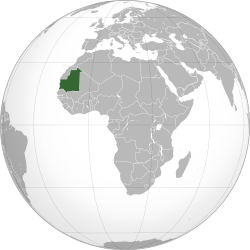Mauritania Targets Cybercrime
By Magharebia
By Bakari Gueye
Nouakchott hosted two conferences last week aimed at improving Mauritania’s overall security. The first seminar examined issues surrounding cyber-security while the second meeting focused on counter-terrorism legislation.
The four-day internet security forum, which closed on December 13th, was organised by the Minister Delegate to the Ministry of State for Education, Employment, Vocational Training and New Technologies, in partnership with the International Telecommunication Union (ITU).

Their objective was “to raise awareness and provide refresher training on data protection methods for interested parties who use IT tools and the internet”, organisers stated. “It included presentations on IT security and how to avert the consequences of uncontrolled use and misuse of IT.”
“It is essential to boost the security of data and networks in order to develop an information society and inspire confidence among those who use information and communications equipment and applications,” Minister-Delegate to the Education Minister Mohamed Ould Khouna said.
He stressed the importance of this symposium as a way “to limit the technical challenges involved in providing protection against crimes committed over the internet and through websites with immoral purposes”.
“The progress made in this area and the diversification of ways in which data are used require us to think about how to perfect plans and mechanisms to protect official and personal information and data and prevent cyber-pirates and hackers from destroying the electronic equipment of the State,” ICT Deputy Director General Zeinabou Mint Bouna noted.
She drew attention “to the need to support members of the public, to facilitate technological development and to take advantage of it in all sectors”.
Counter-terrorism training
Meanwhile, the December 12th counter-terror workshop was organised by justice ministry in partnership with the French co-operation mission in Mauritania. The event featured training for judges and prosecutors, focusing on ways to safeguard fundamental freedoms while tackling extremism.
In addition to discussing anti-terror legislation, participants examined the rules governing the work of Mauritanian magistrates and prosecutors in terms of safeguarding the rights and freedoms of individuals and groups in terrorism-related cases.
“The Mauritanian government has taken the necessary measures to tackle the phenomenon of terrorism by adopting laws and mechanisms… while also guaranteeing the fundamental rights of those accused of terrorism-related offences,” Ministry of Justice Secretary-General Kelly Oumar Sada said.
“The phenomenon of terrorism knows no boundaries and threatens all societies without distinguishing between them,” he added. “These facts make it the duty of every country to combat it as a matter of priority.”
French co-operation and cultural action Counsellor Sylvain Fourcassié agreed. “The fight against the threat posed by terrorism lies at the heart of all concerns,” he stated.
“Mauritania has demonstrated that it is making this a priority through the legislative arsenal with which it has equipped itself, enabling it to create a specialised judicial centre,” Fourcassié added. “This centre has dealt with a large number of investigations and an equally large number of cases which have been brought before trial courts.”
